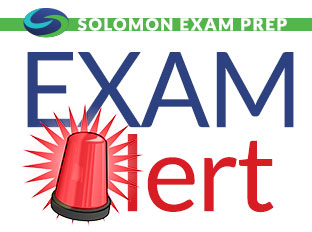 On September 25, 2015, FINRA implemented a new rule regarding the relationship between investment banking personnel and research analysts. FINRA rule 2241 replaces NASD Rule 2711 and NYSE Rule 472. NASD Rule 2711 was created to prevent investment bankers from pressuring research analysts at the investment bank to write favorable research reports about securities that the investment bank was distributing or planning to distribute.
On September 25, 2015, FINRA implemented a new rule regarding the relationship between investment banking personnel and research analysts. FINRA rule 2241 replaces NASD Rule 2711 and NYSE Rule 472. NASD Rule 2711 was created to prevent investment bankers from pressuring research analysts at the investment bank to write favorable research reports about securities that the investment bank was distributing or planning to distribute.
The new rule is similar to the rules it replaces with a series of changes that will be implemented to further promote objective and reliable research.
The new rule requires member firms to establish, maintain and enforce written procedures regarding conflicts of interest between research analysts and other people within the firm (e.g., personnel from investment banking, trading and sales). The written policies and procedures should allow analysts to produce objective and reliable research that reflects their true opinions about the securities they are evaluating. The policies and procedures should prevent firms from using research to manipulate or condition the market.
Rule 2241 prevents investment banking personnel from reviewing research reports for factual accuracy before publication. This practice was allowed in the previous rule. Also, firms must specify in their policies and procedures if and when non-research personnel would be allowed to review a research report before publication. If such prepublication review by non-research personnel is permitted then a firm’s written policies and procedures must specify under what circumstances that would be necessary and appropriate. Under the new rule, a FINRA member firm’s written policies and procedures must prohibit pre-publication review of research reports by a subject company (i.e., an issuer) for purposes other than fact-checking.
The new rule says that firms must establish information barriers to ensure that research analysts are insulated from the review, pressure or oversight of other personnel, such as investment banking, sales, and trading. The rule also extends the prohibition on retaliation, preventing employees from retaliating against a research analyst for writing an unfavorable report.
Interestingly, the rule 2241 reduces the quiet periods for IPOs to 10 days for all underwriters and dealers involved in the IPO (it was formerly 40 days for managers and co-managers and 25 days for underwriters and dealers). The quiet period has been reduced to three days for managers or co-managers on follow-on offerings. During a quiet period, firms may not publish or distribute research reports about the issuer, and research analysts may not make public appearances about the issuer.
The new rule continues to prevent investment-banking personnel from supervising research analysts or exerting any influence over analysts’ compensation. In addition, research analysts may not participate in the solicitation of investment banking business. Moreover, research analysts may not communicate with a customer or prospective customer about an investment banking transaction in the presence of the firm’s management or investment banking department personnel. Similarly, investment-banking personnel are forbidden from directing a research analyst either to participate in soliciting investment-banking business or to communicate with a customer or prospective customer about an investment banking transaction.
Note: In 2012, the Jumpstart Our Business Startups (JOBS) Act loosened constraints on research analysts for emerging growth companies (EGCs), defined as businesses with less than $1 billion in revenue. Specifically, the JOBS Act prohibits regulators from imposing a quiet period on EGCs. This means that research analysts from an underwriting firm that participated in an emerging growth company’s IPO may make both public appearances and distribute research reports during the quiet period. If the company is an emerging growth company, a research analyst may attend a pitch meeting, but not participate in soliciting investment-banking business.
Source: Regulatory Notice 15-30
This alert applies to the Series 7, Series 24, Series 79, and Series 82.
